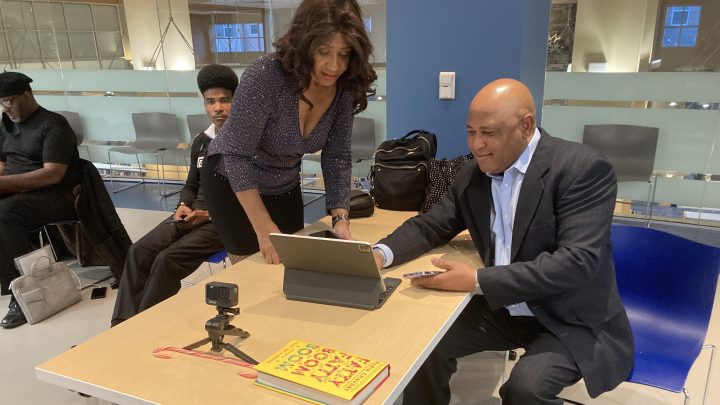
Predatory practices past and present target Black investors
Predatory practices past and present target Black investors

When it comes to risky investments and predatory financial products, Black communities are often singled out by bad actors.
Payday loans, high-fee check-cashing services and outright scams find fertile ground in a community still affected by generations of discrimination and lack of access to traditional financial instruments.
“Black people have long been targeted for these types of predatory services. We can look not that far in the past at the subprime mortgage boom that targeted Black and Latinx communities in particular,” said Jacob Faber, an associate professor of sociology and public service at New York University.
“There were African Americans that were recruited by mortgage lenders to go door to door, church to church, to recruit mortgage applicants for these predatory products. And we see similar things with advertising for payday loans and check cashers and rent-to-own stores.”
The fact that Black Americans have historically had limited access to traditional means of building or maintaining wealth often left people vulnerable to predatory practices. Research from the Brookings Institution found that predominantly Black neighborhoods also have fewer options for financial services than majority-white communities.
It’s rare for scammers to blatantly market to Black consumers, said Michelle Grajales, a staff attorney at the Federal Trade Commission. “But in many, many instances, we are seeing scams that are marketed broadly but have an impact on the Black community.”
A 2021 FTC report found that people living in majority Black communities were often subject to discrimination and questionable or fraudulent schemes related to credit bureaus, used car sales and payday lending. Black Americans are also more likely to borrow (and borrow more) for college and can be at particular risk for student loan scams.
“We’re often seeing companies that pretend to be the Department of Ed or to be affiliated with the Department of Education or a loan servicer. They will make false promises of some kind of help with your student loans,” Grajales said.
The FTC included an example of one such scam call in a 2021 warning to consumers.
Black consumers who feel shut out of traditional investments can also fall prey to risky financial schemes portrayed as business opportunities or multilevel-marketing programs.
Ken Nichols recently traveled from North Carolina to a Maryland public library to help promote an MLM venture related to cryptocurrency. The self-described “serial entrepreneur” spoke excitedly of the products being marketed at the presentation — computer “hubs” and tablets designed to mint little-known cryptocurrency tokens. The audience, which was entirely Black, was encouraged to see the system as a way to build generational wealth.
“It makes money for you passively 24 hours a day. There is no gamble to your money,” Nichols said.
Multiple crypto industry watchers have flagged such systems as likely scams or pyramid schemes, but Nichols shrugged off the concerns. He said he counters such narratives with an analogy.
“We all pray and ask God or higher being for whatever we want,” he said. “So when the opportunities come before us, that may very well be the opportunity that you’ve just prayed and asked for. But … because you judged the package that it came to you in, you missed [the] opportunity.“
NYU’s Jacob Faber pointed out that while it can be easy to blame people for falling into what’s likely to be a very risky financial endeavor, it’s important to keep the economic context in mind.
“We live in a society where inequality is rising rapidly. Income instability is increasing over time, and so people are facing really precarious financial situations,” he said. “And so the kind of hope that a ‘get rich quick’ scheme, if you want to call it, provides … it can be really enticing.”
Faber said being victimized by a predatory or fraudulent scheme is often a function of larger structural and economic forces baked into the nature of our financial system.
There’s a lot happening in the world. Through it all, Marketplace is here for you.
You rely on Marketplace to break down the world’s events and tell you how it affects you in a fact-based, approachable way. We rely on your financial support to keep making that possible.
Your donation today powers the independent journalism that you rely on. For just $5/month, you can help sustain Marketplace so we can keep reporting on the things that matter to you.

















